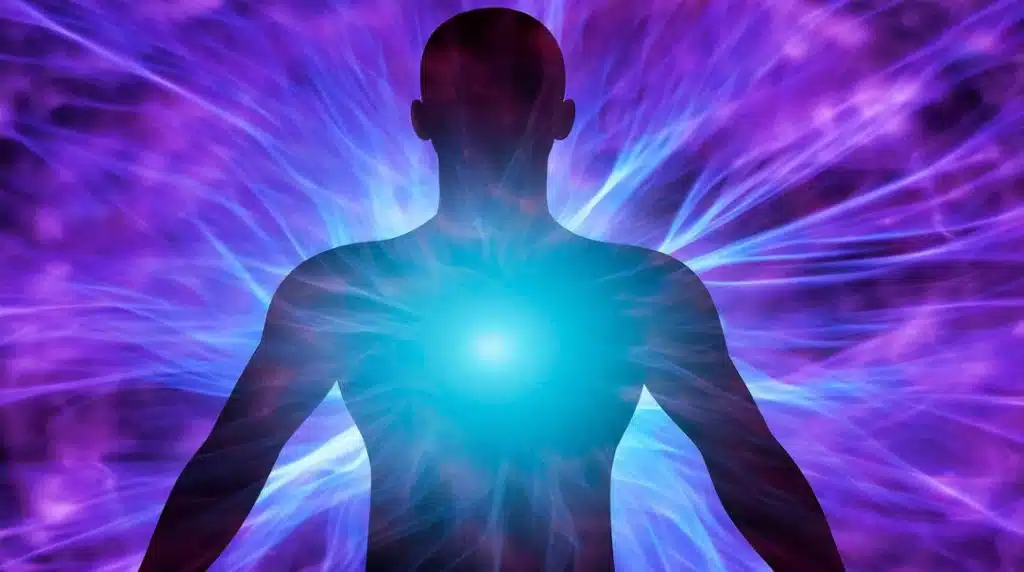Group Therapy With Weed
Welcome to a world where cannabis is not just a recreational substance but also a therapeutic tool for group therapy. In this article, we will delve into the fascinating realm of using weed as a catalyst for healing and personal growth. Whether you’re a cannabis enthusiast or simply curious about its potential benefits, join us on this journey as we explore the various ways in which cannabis can enhance group therapy sessions.
The Benefits of Group Therapy
Group therapy has long been recognized as an effective form of treatment for a wide range of mental health issues. It provides a supportive and non-judgmental environment where individuals can share their experiences, gain insights, and receive emotional support from others facing similar challenges. The power of group therapy lies in the collective wisdom and empathy that emerges from the group dynamic.
Cannabis as a Facilitator
-
Different strains of weed and their effects: Just as there are different personalities within a therapy group, there are also different strains of weed, each with its unique effects and therapeutic properties. Some strains may promote relaxation and introspection, while others may boost creativity and sociability. It’s important to choose the right strain that aligns with the goals of the therapy session.
-
The role of weed in reducing anxiety and depression: Anxiety and depression are common mental health issues that can significantly impact one’s quality of life. Cannabis has shown promise in alleviating symptoms of anxiety and depression, providing individuals with a sense of calm and upliftment. However, it’s crucial to consult with a healthcare professional before incorporating cannabis into therapy.
-
Exploring the different terpenes found in weed and their effects: Terpenes are aromatic compounds found in cannabis that contribute to its distinct flavors and effects. For example, the terpene linalool, also found in lavender, is known for its calming and relaxing properties. By understanding the different terpenes present in weed, therapists can tailor the therapy experience to meet the specific needs of the group.
-
The potential benefits of using weed for PTSD: Post-traumatic stress disorder (PTSD) can be debilitating, causing intense anxiety, nightmares, and flashbacks. Cannabis has shown promise in reducing the symptoms of PTSD, providing relief and promoting emotional healing. However, it’s essential to approach this treatment option with caution and under the guidance of a qualified healthcare professional.
-
The impact of weed on creativity and cognitive function: Cannabis has long been associated with enhanced creativity and divergent thinking. In a group therapy setting, this can open up new avenues for self-expression and problem-solving. However, it’s important to strike a balance between the therapeutic benefits and potential cognitive impairments that cannabis may cause in some individuals.
Choosing the Right Cannabis Products
When incorporating cannabis into group therapy, it’s crucial to consider the preferences and needs of the participants. Here are some popular cannabis products that can be used during therapy sessions:
-
Concentrates: Concentrates are highly potent cannabis extracts that offer a more intense and immediate effect. They can be consumed through vaporization or dabbing, providing a quick onset of therapeutic benefits.
-
Edibles: Edibles are cannabis-infused food products that offer a discreet and long-lasting effect. They come in various forms, such as gummies, chocolates, and baked goods, making them a convenient option for group therapy sessions.
-
Vapes: Vaping involves inhaling vaporized cannabis oil or flower using a vaporizer device. Vapes offer a more controlled and precise dosage, making them suitable for individuals who prefer a smoke-free experience.
-
Tinctures: Tinctures are liquid cannabis extracts that are typically consumed sublingually (under the tongue). They provide a fast-acting and discreet method of cannabis consumption, allowing participants to adjust their dosage as needed.
The Importance of Responsible Consumption
While cannabis can enhance the group therapy experience, it’s crucial to emphasize responsible consumption and set clear guidelines within the therapy setting. Here are some key points to consider:
-
Start low and go slow: It’s important for participants to start with a low dosage and gradually increase it to find their optimal therapeutic level. This approach minimizes the risk of adverse effects and allows individuals to gauge their tolerance.
-
Open communication: Encourage open and honest communication within the therapy group regarding the effects and experiences of using cannabis. This fosters a supportive and non-judgmental environment where participants can share their insights and concerns.
-
Safety first: Ensure that the therapy space is safe and conducive to cannabis consumption. Provide proper ventilation, comfortable seating, and a designated area for participants to consume cannabis if needed.
Understanding Therapy
Therapy encompasses a wide range of approaches and techniques, tailored to meet the unique needs of each individual. The primary goal of therapy is to promote healing, growth, and self-awareness by addressing various psychological, emotional, and behavioral challenges. Therapists employ evidence-based strategies to help individuals gain insight, develop coping skills, and make positive changes in their lives.
The Benefits of Therapy
-
Emotional Support: One of the fundamental benefits of therapy is the provision of emotional support. Therapy offers a safe and non-judgmental space where individuals can express their feelings, fears, and concerns without fear of criticism or rejection. The therapist serves as a compassionate and empathetic guide, offering validation and understanding.
-
Improved Mental Health: Therapy has been proven effective in treating a wide range of mental health conditions, including anxiety disorders, depression, post-traumatic stress disorder (PTSD), obsessive-compulsive disorder (OCD), and more. Through therapy, individuals can gain a better understanding of their condition, develop coping strategies, and work towards recovery.
-
Enhanced Self-Awareness: Therapy provides an opportunity for individuals to gain a deeper understanding of themselves, their thoughts, emotions, and behaviors. Through self-reflection and exploration, individuals can uncover underlying patterns, beliefs, and motivations that may be contributing to their challenges. This increased self-awareness can lead to personal growth and positive change.
-
Improved Coping Skills: Therapy equips individuals with effective coping skills to navigate life’s challenges. Therapists teach practical techniques and strategies to manage stress, regulate emotions, and handle difficult situations. These skills can be applied not only during therapy sessions but also in everyday life, leading to improved resilience and well-being.
-
Enhanced Relationships: Therapy can have a positive impact on interpersonal relationships. By exploring communication patterns, addressing conflicts, and developing healthy boundaries, individuals can improve their relationships with family, friends, romantic partners, and colleagues. Therapy can also help individuals develop healthier relationship patterns and attract more fulfilling connections.
-
Increased Self-Esteem and Confidence: Therapy can boost self-esteem and confidence by helping individuals challenge negative self-perceptions and develop a more positive self-image. Through therapy, individuals can identify and challenge self-limiting beliefs, build self-compassion, and cultivate a greater sense of self-worth.
-
Stress Reduction: Therapy provides individuals with tools and techniques to manage stress effectively. By exploring stressors, identifying triggers, and developing healthy coping mechanisms, therapy can help individuals reduce the impact of stress on their mental and physical well-being.
-
Improved Problem-Solving Skills: Therapy can enhance problem-solving skills by helping individuals develop a more objective and rational approach to challenges. Therapists can guide individuals in identifying alternative perspectives, exploring different solutions, and making informed decisions.
-
Healing from Trauma: Therapy is a crucial component of the healing process for individuals who have experienced trauma. Therapists trained in trauma-focused approaches can help individuals process traumatic experiences, reduce distressing symptoms, and regain a sense of safety and control.
-
Personal Growth and Self-Actualization: Therapy can facilitate personal growth and self-actualization by encouraging individuals to explore their values, passions, and goals. Through therapy, individuals can gain clarity about their life’s purpose, make meaningful changes, and live a more authentic and fulfilling life.
Different Approaches to Therapy
There are various approaches to therapy, each with its unique focus and techniques. Some common therapeutic approaches include:
-
Cognitive-Behavioral Therapy (CBT): CBT focuses on identifying and challenging negative thought patterns and behaviors that contribute to distress. It aims to replace maladaptive thoughts and behaviors with healthier alternatives.
-
Psychodynamic Therapy: Psychodynamic therapy explores unconscious processes and unresolved conflicts that may be influencing an individual’s thoughts, emotions, and behaviors. It aims to bring these underlying issues to conscious awareness for resolution.
-
Humanistic Therapy: Humanistic therapy emphasizes personal growth, self-acceptance, and self-actualization. It focuses on the individual’s unique experiences, values, and goals, fostering a supportive and non-judgmental therapeutic relationship.
-
Family Therapy: Family therapy involves working with families as a whole to address relational dynamics, communication patterns, and conflicts. It aims to improve family functioning and promote healthier relationships.
-
Group Therapy: Group therapy involves a therapist facilitating a therapeutic session with a small group of individuals facing similar challenges. It provides a supportive and collaborative environment for individuals to share experiences, gain insights, and receive feedback from others.
Choosing the Right Therapist
Finding the right therapist is crucial for a successful therapy experience. Here are some factors to consider when selecting a therapist:
-
Credentials and Experience: Ensure that the therapist is licensed and has experience working with the specific issues you wish to address.
-
Therapeutic Approach: Research different therapeutic approaches to find one that aligns with your needs and preferences.
-
Therapeutic Relationship: The therapeutic relationship is a key factor in the success of therapy. Choose a therapist with whom you feel comfortable, understood, and supported.
-
Accessibility and Practicality: Consider factors such as location, availability, and cost when choosing a therapist.
Therapy offers a multitude of benefits for individuals seeking support, growth, and healing. From improved mental health and enhanced self-awareness to increased coping skills and healthier relationships, therapy can have a profound and positive impact on various aspects of life. By working with a trained professional, individuals can navigate life’s challenges, develop resilience, and unlock their full potential. So, if you’re considering therapy, take the first step towards a brighter future and embark on a journey of self-discovery and personal growth.
Remember, therapy is a collaborative process, and finding the right therapist is essential. If you’re ready to begin your therapeutic journey, reach out to a qualified professional or visit West Coast Releaf Online Dispensary for more information and resources.
There are various types of therapy, each with its unique focus and techniques. Here are some common types of therapy:
-
Cognitive-Behavioral Therapy (CBT): CBT focuses on identifying and challenging negative thought patterns and behaviors that contribute to distress. It aims to replace maladaptive thoughts and behaviors with healthier alternatives.
-
Psychodynamic Therapy: Psychodynamic therapy explores unconscious processes and unresolved conflicts that may be influencing an individual’s thoughts, emotions, and behaviors. It aims to bring these underlying issues to conscious awareness for resolution.
-
Humanistic Therapy: Humanistic therapy emphasizes personal growth, self-acceptance, and self-actualization. It focuses on the individual’s unique experiences, values, and goals, fostering a supportive and non-judgmental therapeutic relationship.
-
Family Therapy: Family therapy involves working with families as a whole to address relational dynamics, communication patterns, and conflicts. It aims to improve family functioning and promote healthier relationships.
-
Group Therapy: Group therapy involves a therapist facilitating a therapeutic session with a small group of individuals facing similar challenges. It provides a supportive and collaborative environment for individuals to share experiences, gain insights, and receive feedback from others.
-
Behavioral Therapy: Behavioral therapy focuses on modifying behaviors that are maladaptive or problematic. It utilizes techniques such as reinforcement, punishment, and exposure therapy to promote positive behavior change.
-
Dialectical Behavior Therapy (DBT): DBT is a type of therapy that combines elements of CBT with mindfulness techniques. It is often used to treat individuals with borderline personality disorder and helps them regulate emotions, improve interpersonal skills, and develop coping strategies.
Conclusion
Group therapy with weed offers a unique and potentially transformative experience for individuals seeking healing and personal growth. By harnessing the therapeutic properties of cannabis and the power of group dynamics, participants can explore new dimensions of self-awareness, empathy, and connection. Remember, it’s essential to approach cannabis-assisted therapy with caution, under the guidance of qualified professionals, and with the utmost respect for individual preferences and needs.
So, if you’re ready to embark on a journey of self-discovery and healing, consider exploring group therapy with weed. And for all your cannabis needs, don’t forget to check out West Coast Releaf Online Dispensary, where you can find a wide range of high-quality cannabis products to enhance your therapy experience. If you are interested in buying weed online and THC products, check out West Coast Releaf online weed dispensary and shop for your weed online and cannabis products at westcoastreleaf.co!













